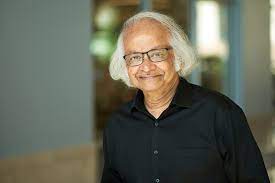March 2, 2024

IITKGP Alum and President's Gold Medalist Supriyo Datta (1975/B.Tech/ECE) is a visionary thinker in the field of nanoscale electronics
IITKGP Foundation
Dr. Supriyo Datta is a leading figure in the modeling and understanding of nano-scale electronic conduction. He has been called "one of the most original thinkers in the field of nanoscale electronics." Supriyo Datta received his PhD from the University of Illinois at Urbana-Champaign and joined Purdue University in 1981 where he is the Thomas Duncan Distinguished Professor of Electrical and Computer Engineering (since 1999). He is a fellow of the IEEE, the American Physical Society, and the Institute of Physics. He has also been the Director of the NASA Institute for Nanoelectronics and Computing. Professor Datta won the 2011 William Procter Prize for Scientific Achievement; the award honors an individual in recognition of outstanding achievement in scientific research and demonstrated ability to communicate the significance of this work to scientists in other disciplines. His many honors include the National Science Foundation Presidential Young Investigator Award and the D.D. Ewing Teaching Award from the Purdue University School of Engineering. Among other accolades, Supriyo received the Frederick Emmons Terman Award from the American Society of Engineering Education in 1994 for his book on surface acoustics and the Presidential Young Investigator Award from the National Science Foundation in 1984.
The non-equilibrium Green function (NEGF) method approach pioneered by Supriyo’s research group for the description of quantum transport has been widely adopted in the field of nanoelectronics and he was elected to the US National Academy of Engineering for this work. He is also known for innovative theoretical proposals that have inspired new fields of research including molecular thermoelectricity, negative capacitance devices, and spintronics. In addition to his enormous contributions through research, Datta is a lauded teacher. A distinctive aspect of his teaching style is an emphasis on critical thinking, in addition to technical problem-solving skills. Datta's classroom lectures have been videotaped and made available to students around the world by the National Science Foundation-funded Network for Computational Nanotechnology through the nanoHUB, a Website serving nearly 10,000 users per year.
